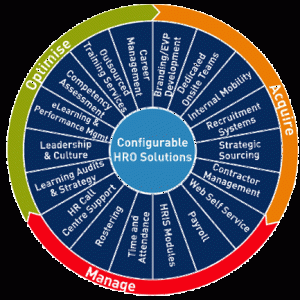
International trade plays a paramount role in today’s global economy, enabling businesses to expand their horizons and reach customers worldwide. However, engaging in cross-border transactions involves navigating through a complex web of customs regulations, compliance requirements, and documentation procedures. To successfully conduct international trade while mitigating risks, businesses often turn to customs and compliance services.
Understanding Customs and Compliance
Customs and compliance services encompass a range of activities aimed at ensuring that businesses adhere to all relevant laws, regulations, and trade agreements when importing or exporting goods. These services enable organizations to streamline their international trade processes, ensuring compliance with customs and security regulations.
The Role of Customs and Compliance Services
Customs and compliance services assist businesses in complying with the diverse requirements imposed by national and international customs authorities. These services offer invaluable expertise, guiding businesses through the intricacies of global trade regulations and helping them avoid penalties, delays, and reputational damage.
1. Customs Documentation
One of the primary responsibilities of customs and compliance services is to assist businesses in preparing accurate and complete documentation for international shipments. This includes ensuring that all necessary customs forms, permits, and declarations are duly filled out and submitted.
To enhance efficiency and reduce the risk of errors, customs and compliance experts often leverage technology solutions such as electronic data interchange (EDI) and customs management systems. These tools automate and centralize the customs documentation process, increasing compliance accuracy and saving businesses valuable time and resources.
2. Tariff Classification
Accurate and precise tariff classification is crucial for determining the correct duties and taxes applicable to imported or exported goods. Customs and compliance services help businesses navigate through complex tariff schedules and classify their products correctly.
By utilizing their comprehensive knowledge of harmonized system codes and customs regulations, customs and compliance experts ensure that businesses pay the correct amount of duties and avoid potential penalties or disputes related to incorrect classification.
3. Compliance Audits
To foster trade facilitation and ensure compliance, customs and compliance services conduct periodic audits of businesses’ import and export processes. These audits verify the accuracy of declarations, identify potential compliance risks, and provide recommendations for improvement.
By conducting compliance audits, customs and compliance experts help businesses proactively identify and address any gaps or shortcomings before customs authorities do. This proactive approach not only strengthens businesses’ compliance efforts but also enhances their credibility and reputation in the global marketplace.
4. Trade Compliance Training
Keeping up with constantly evolving customs regulations and trade compliance requirements can be a daunting task. Customs and compliance services often offer specialized training programs to help businesses stay updated and train their employees on essential trade compliance practices.
These training programs cover topics such as import/export regulations, restricted party screening, anti-corruption, export controls, and more. Equipping employees with the necessary knowledge and skills minimizes the risk of non-compliance and empowers businesses to achieve seamless cross-border transactions.
Benefits of Customs and Compliance Services
Engaging customs and compliance services offers numerous advantages for businesses involved in international trade:
1. Reduced Compliance Risks
Customs and compliance services help businesses navigate the complex landscape of customs regulations, reducing the risk of non-compliance and associated penalties. By staying updated on regulatory changes and adopting best practices, businesses can effectively mitigate compliance risks.
2. Faster Customs Clearance
Efficient customs documentation and accurate tariff classification, facilitated by customs and compliance services, expedite the clearance process. This results in reduced transit times, faster delivery of goods, and improved customer satisfaction.
3. Cost Savings
Avoiding customs penalties, tariff disputes, and delays due to non-compliance ultimately leads to cost savings for businesses. Customs and compliance services ensure that companies pay the correct amount of duties, avoiding financial losses and reputational damage.
4. Enhanced Reputation
Compliance with customs regulations not only strengthens businesses’ credibility but also enhances their reputation as reliable and responsible global trade partners. By adhering to best practices and industry standards, businesses can build trust with customers, suppliers, and regulatory authorities.
Conclusion
Navigating the intricate customs and compliance landscape is crucial for businesses engaged in international trade. By leveraging the expertise of customs and compliance services, companies can streamline their import and export processes, ensure regulatory compliance, and achieve smooth cross-border transactions. By prioritizing customs and compliance, businesses can thrive in the global marketplace while mitigating potential risks and maximizing opportunities.


